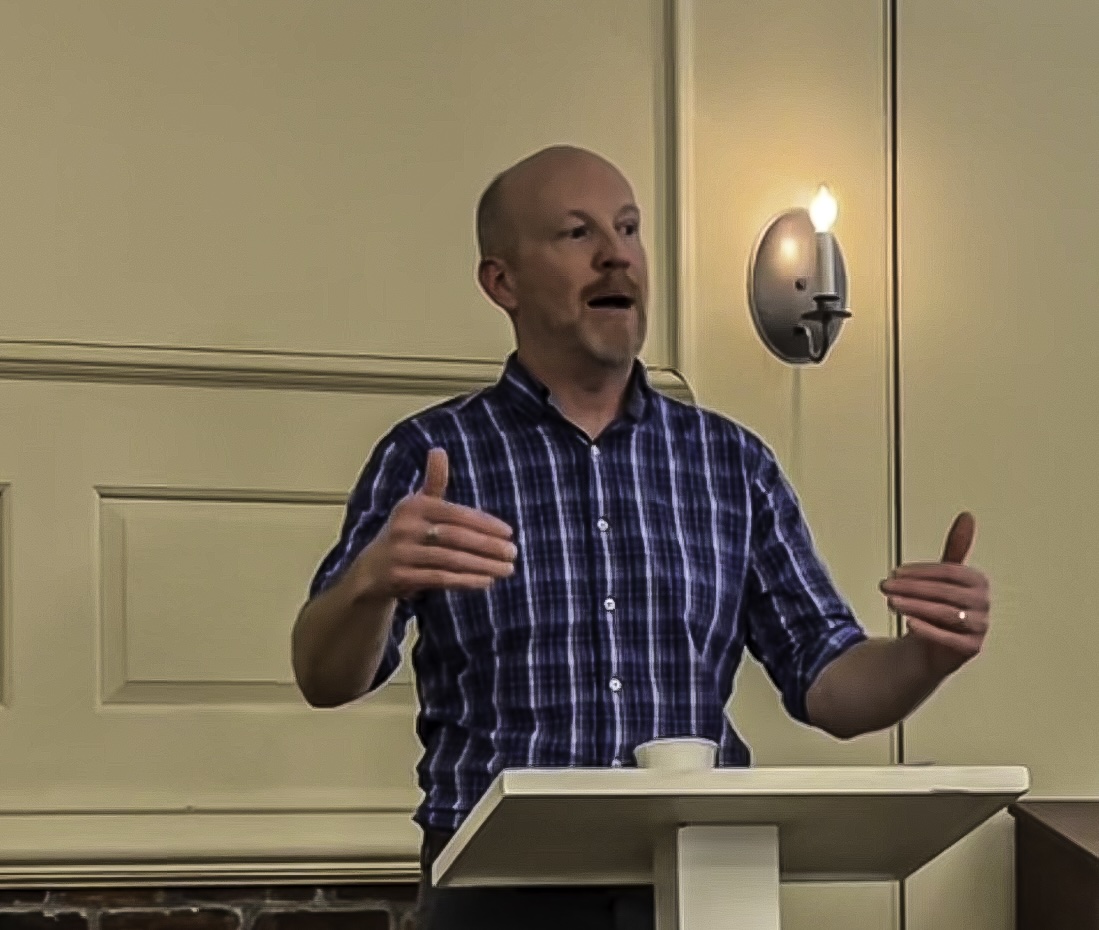Maine author Lewis Robinson hosts talk centering local young adult literary narratives
February 28, 2025
 Carolina Weatherall
Carolina WeatherallLast Monday, students and community members gathered in Massachusetts Hall to enjoy a reading and conversation with author Lewis Robinson. Robinson currently teaches creative writing at the University of Maine at Farmington and lives in Portland with his family.
Professor of English Brock Clarke invited Robinson to the College, with the Alpha Delta Phi Literary Society funding his visit. As Clarke introduced Robinson to attendees, he highlighted the unique qualities of Robinson’s writing.
“[A] conflict between what you hope to be and what you fear you are is a prominent feature of all of Lewis’ work,” Clarke said. “Lewis’ work is not made up of an outward cheerfulness and goodwill. Still, beneath that facade, there is rage and resentment, and the struggle between the two sometimes produces great comedy and sometimes great sadness and damage, and also great fiction, which is why he is here today.”
Robinson’s third book, “The Islanders,” which was released in 2024, was the event’s focus. The novel follows the story of a group of teenagers selected for an exclusive leadership program held off the coast of Maine and explores themes of friendship, survival and socioeconomic class.
“[The novel] feels like a Maine story,” Robinson said. “Maine is one of the poorest states in the country, and it also has such extreme, wealthy pockets in it.… I don’t consider myself an explicitly political writer, but how can any work not be political these days? I feel like the choices you make are our reflection of what’s happening in the world.”
After reading from “The Islanders,” Robinson fielded questions from the audience, commenting on his writing process and the story’s details. Robinson described the process of writing the perspectives of characters much younger than himself.
“I teach, so I can access their lives. I am interested in characters who are in flux,” Robinson said. “[Adolescence is] a time of consequence. You know, it’s a time of challenge. It’s also a time of a big difference between interior life and what’s happening on the outside, so it encourages my imagination…. All [the characters] are lost in some way, or have faced some challenges in their lives, and they’re being thrust into this new challenging situation.… It was kind of an irresistible story to pursue.”
Before the reading, Robinson visited Clarke’s Advanced Fiction Workshop and engaged with students in the classroom. Clarke found the discussion and reading complimented each other well.
“I want to make sure that the questions in the readings are also for people from the public, not those who just take classes here or are taking classes with me or the other creative writers here,” Clarke said. “Students get to ask the questions of this writer [and] to experience that person as someone who’s actively struggling with the same things you’re struggling with. And then [both students and community members] get to see a kind of performance.”
Clarke’s students appreciated the opportunity to meet and work with Robinson.
“I had a lot of questions after reading the book, so it was great for him to come to class and have those questions answered, particularly about the structure of the book,” Cami Lindsey ’25 said. “I appreciated hearing the author’s point of view.”
Clarke saw the visit as a particularly meaningful way for students to learn about the writing process.
“It’s rare that people get to ask direct questions to the writer. They’re often seen as just part of a book,” Clarke said. “When you talk about something, you don’t talk to the writer about the decisions they’ve made or the choices they’ve made while writing it. Part of my task here is to get students to think about how the thing is made and how they make the things that they want to make.”
To Clarke, Robinson’s talk was especially important to connect with Bowdoin students because it presents a unique examination of young adult experiences in Maine.
“Robinson made this interesting shift toward not just toward novels, but [a novel] that straddles the line between young adult and literary fiction,” Clarke said. “Since many of our students, being young adults themselves, have a vested interest in young adult literature, whether they’re writing it or actively reading it, I thought he’d be a useful, good [and] entertaining person to have on campus and to talk about how he does the things he does.”

Comments
Before submitting a comment, please review our comment policy. Some key points from the policy: